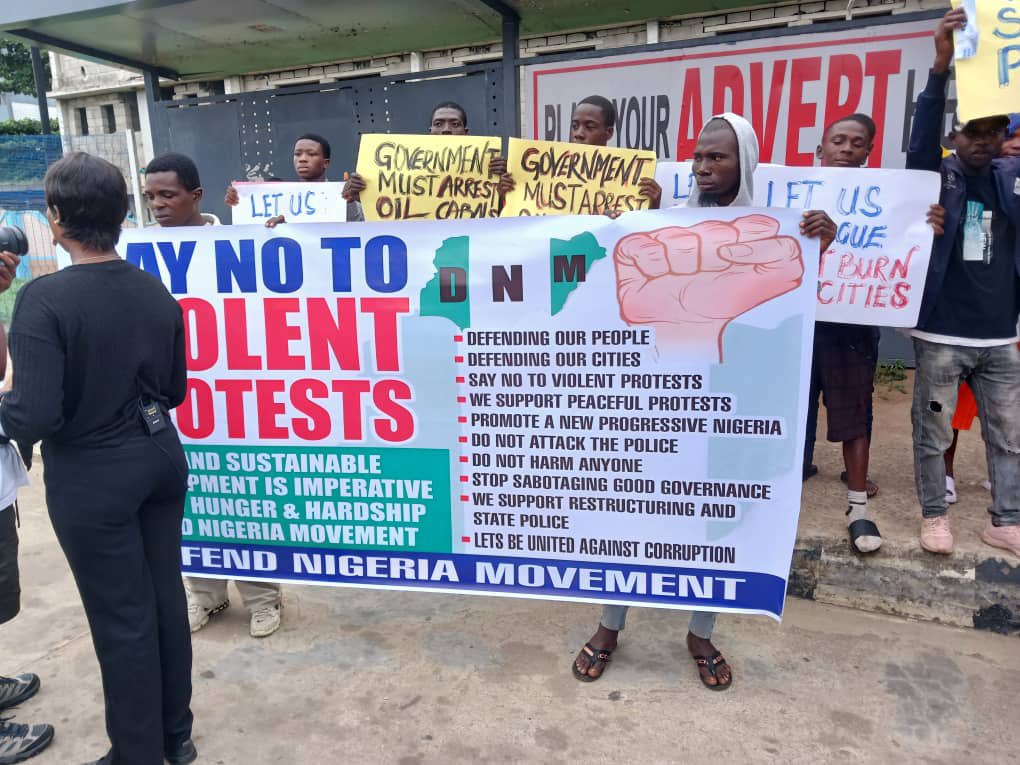There’s general disquiet across Nigeria as many streets are deserted and protesters mass up at various designated locations for protests over the cost of living on Thursday.
Authorities warn about attempts to imitate the violent demonstrations in Kenya that forced the government to backtrack on tax hikes. Bangladeshi youths started theirs barely after the dust had settled in Kenya.
Nigeria has been hit with soaring inflation, high cost of fuel and a sharply devalued naira currency after President Bola Ahmed Tinubu introduced reforms a year ago to revive the economy.
the protest movement has been well received with an online campaign among Nigerians battling with food inflation at 40 percent and fuel prices that tripled since Tinubu entered office.

Government officials sought to appeal to young activists to reject rallies and allow time for Tinubu’s reforms to take hold.
Traditional rulers including the Sultan of Sokoto, Ooni of Ife, the paramount ruler of Benin Kingdom among others have appealed for calm.
Protest leaders, a loose coalition of civil society groups, vowed to press on with rallies despite what they say were legal challenges trying to limit their rallies to public parks instead of marches.
“We believe that this protest must go on regardless of the threat and intimidation,” the protest coalition said in a statement this week.
Nigeria’s government on Wednesday listed aid it has offered to alleviate economic pain, including raising the minimum salary levels, delivering grains to states across the country and aid to the most needy.
“The government of President Tinubu recognises the right to peaceful protest, but circumspection and vigilance should be our watch words,” Secretary to the Federation of Government, George Akume, told reporters.
“Our appeal is that Nigerians should please pursue the path of peace, dialogue and collaboration.”
The last major protest in Nigeria was in 2020 when young activists stormed the streets to rally against the brutality of the SARS anti-robbery squad in demonstrations that evolved into some of the largest in Nigeria’s modern democracy.
But the rallies ended in bloodshed in Lagos, arson in Abuja with Rights groups accusing the army of opening fire on peaceful protesters, and the police being complicit. The military said troops only used blanks to break up a crowd defying a curfew.
Officials in Uganda arrested dozens of protesters in July after they participated in banned anti-corruption protests organised online by young activists inspired by Kenya’s rallies.


